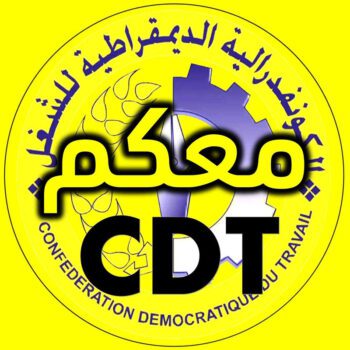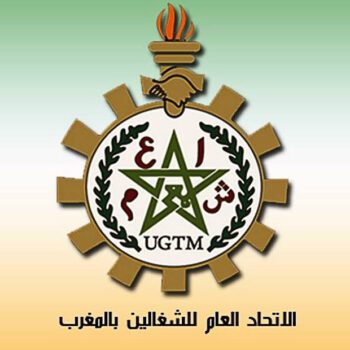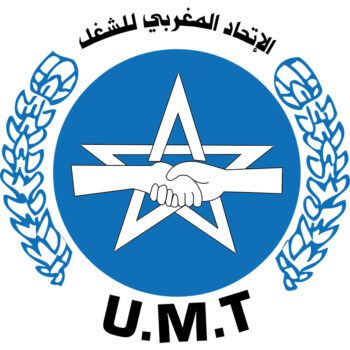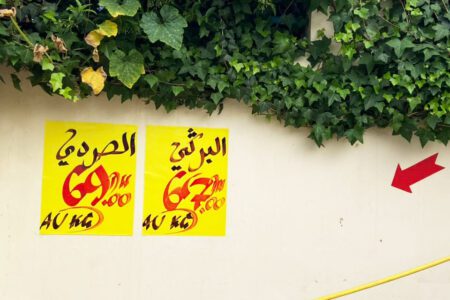As in many countries, 1 May is a public holiday in Morocco.
Less than elsewhere, as the restaurants and hanouts in my neighbourhood are open, as are the shopping centres. But not the banks…
I’m (un)lucky enough to live not far from a street regularly used for trade union and similar demonstrations, and I can hear them in the morning as I sip my coffee. Today, the noise was supplemented by horns honking until the early afternoon.
1 May is always a bit of a ‘strange’ day for me. I couldn't find any lily of the valley in Morocco, yet the French tradition of giving each other these little white bells for good luck was an important one in my family. I miss not being able to continue it, or even growing lily of the valley on my balcony…
A May 1st in a time of crisis, when work is no picnic
This 1 May is accompanied by social demonstrations and strikes that have been going on for several weeks. Whether it’s ‘just’ for a pay rise or for more, justice personnel, teachers and civil servants are on strike, often intermittently to avoid bringing the country to a complete standstill. Wage negotiations have led to a slight increase in the minimum wage, which will probably not be reflected in higher salaries.
But life has become more difficult in Morocco, hit by waves of Covid, containment (in my neighbourhood, many shops/restaurants didn’t reopen after lockdown), international crises and food inflation affecting even essential products.
Then I came across a post in Challenge.ma, by Reda Mouhsine, which struck me as totally out of touch with the realities facing the vast majority of Moroccans. The link is at the bottom of the post, to summarise his questioning “Does May 1 still have a meaning?” :
The May Day demonstrations no longer draw the same crowds as in the past. This is not because Moroccan employees are satisfied, but because their expectations have changed in a world where work is evolving. Moroccan employees faced with globalisation no longer want to be disturbed by email at the weekend, and they are looking for meaning. These days,” he says, “we are looking for work that is meaningful to us, that is in line with our personal values, that gives us a sense of personal fulfilment, that makes a positive contribution to society. Moroccan trade unions, “clinging to their 70s software”, have failed to evolve, and it is companies that are responding to this “quest for meaning”, not trade unions.
OK…
The “quest for meaning” and Maslow’s pyramid
Whether you’re talking about Maslow’s pyramid or quoting Brecht in The Threepenny Opera “Erst kommt das Fressen, dann kommt die Moral” (Grub first, then ethics), whether you’re an American psychologist or a German Communist playwright, you’re saying the same thing: the “quest for meaning” can only take place when primary needs (physiology and security) and secondary needs (love, belonging and esteem) are met.

The ‘quest for meaning’ (which straddles the last two floors) is therefore the domain of employees who do not have major material anxieties. Of course, things are less simplistic but, quite clearly, when you’re a minimum wage earner, your main quest for meaning is to find a job, whatever it may be…
And to say that the unions no longer mobilise the crowds because they don’t respond to the “quest for meaning” is to sound like Marie-Antoinette saying “they don’t have any bread? Let them eat brioches!
So how do you explain this real decline in trade union marches?
By the history of trade unions in Morocco
The history of trade unions in Morocco began late, since trade union rights were not granted until 1936, and were reserved for Europeans. Nonetheless, the “departmental” section of the Moroccan CGT pulled out all the stops and managed to stage a few strikes in 1936-1937. In a country where the vast majority were rural and where many Moroccan workers were illiterate, the few trade union and/or left-wing publications were in French and reached a tiny minority.
As union membership was forbidden to Moroccans, joining a union became an act of resistance; Frenchmen such as Pierre Parent, who set up works councils in December 1944, and Albert Ayache, a professor and founder of the first Moroccan communist party, were the emerging legal face of a trade union movement that was gradually taking shape.
But Morocco did not experience what had accompanied the birth of trade unionism in Europe: students going into factories to propagate communist, socialist or anarchist ideas, “educating” workers and building class consciousness. Whether this was good or bad, it’s a fact that explains a lot of things today.
On the other hand, there were many professional and “employers'” unions. They fought to improve the lot of the colonists, but not that of the workers.
By “mixing” trade unionism and the fight for independence
Unlike elsewhere, therefore, political unity preceded trade union unity, at least during the period of resistance and the struggle for independence.
The first Moroccan trade union, the Union Marocaine du Travail (Moroccan Union of Labour), had very strong links with the Istiqlal, nationalist and "right-wing" party (even if the right-left distinction does not have the same meaning in Morocco, especially at the time of independence in a monarchy that pre-dated the 2011 constitution). Moreover, in 1960, the “istiqlalian” part of the UMT seceded to found the Union Générale des Travailleurs du Maroc (General Union of Moroccan Workers). The UGMT was officially affiliated to the Istiqlal. In 1978, a second split took the “left” wing of the union with the creation of the Confédération Démocratique du Travail (Democratic Confederation of Labour), which was itself affiliated to the Moroccan socialist parties, USFP then CNI.
Links between political parties and trade unions are not exceptional. In Morocco, the two worlds are more mixed than elsewhere, with activists having both trade union and political careers.
Moroccans have little confidence in their politicians, and this mistrust is also reflected in their trade union staff.
By the programmed and systematic weakening of “the left” and popular protests
How can you be a communist in a monarchy where the King is also Commander of the Faithful? The Moroccan Communist Party, which defined itself as royalist in its articles of association, succeeded in making this ideological leap.
Well after Ben Barka’s disappearance, starting with the bread riots in 1981, the Moroccan authorities did everything they could to completely muzzle the left, which they feared, even if it meant encouraging the Islamist component to replace it.
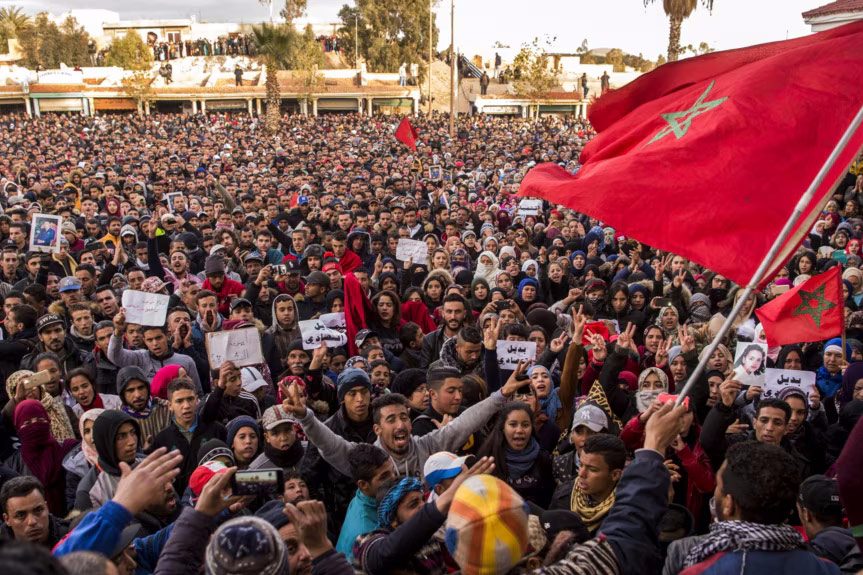
The Arab Spring was brought under control in Morocco, in particular with the introduction of the new constitution. On the other hand, the events in the Rif, the Hirak, prove that the authorities can still crack down very hard on any demonstration that goes beyond the limits they set.
And so, little by little, they are equating “demonstration” with “rebellion”.
By atomising work
Although Uber has been banned in Morocco, uberisation has largely taken hold, particularly in the big cities. Whether they are Glovo delivery drivers or employees working as autoentrepreneurs in call centres, among others, many Moroccan “employees” are isolated, with companies that benefit from the precariousness afforded to them by their autoentrepreneur status. And although it is theoretically possible, in the eyes of the law, for such contracts to be reclassified as employment contracts, this has not yet been the subject of case law.
There are also large groups, such as OCP, that practice intensive outsourcing, with contracts that change regularly. The employees are still employees, but they move from company to company, without being able to accumulate seniority… or form a group.
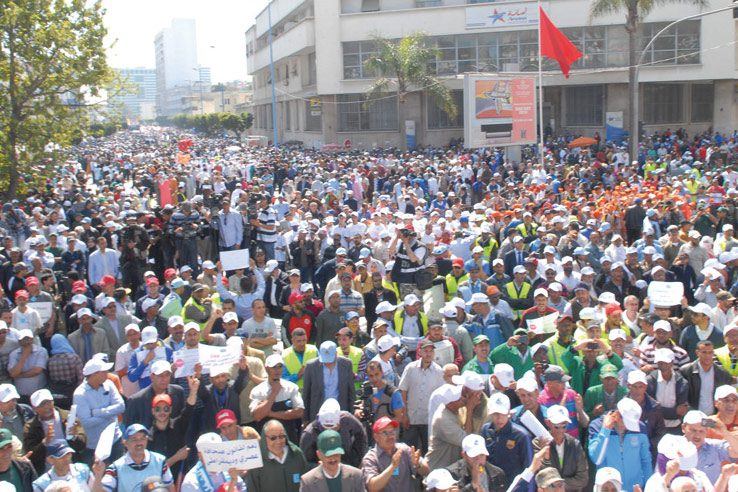
Not to mention the practices of many companies, including call-centres, where the first employee to protest risks dismissal, will be denounced by his or her colleagues on the work floor and not really defended by a union representative chosen by management.
Admittedly, this is not specific to Morocco. But in a country where the labour code is far less protective than elsewhere, this weighs all the more heavily as rising unemployment encourages people to accept just about anything. Better to work cheaply than not at all…
The advantage of strong unions
Before Morocco, I lived and worked in several countries: France, Belgium, England and Germany. The English trade unions were destroyed by Margaret Thatcher, the French trade unions… are what they are. It was in Belgium, and even more so in Germany, that I discovered just how beneficial strong trade unions are.
For the workers, of course, but also for the economy, because employer-employee relations are more institutionalised and less prone to uncontrolled industrial action.
Twenty years of progress for Moroccan workers
Whether driven by trade union demands or decided by the government at the Royal instigation, I have seen a great deal of progress in twenty years in Morocco.
In spite of everything, the wage-earning sector has expanded considerably, with a huge increase in CNSS membership rates, including in traditionally informal sectors such as agriculture and tourism. I remember when I started organising tours in 2005. In hotels and restaurants, the vast majority of workers were families, with no pay slips (or social security cover). Another major advance was the introduction of salaried domestic workers, with a simplified procedure for private individuals and a minimum wage that was unfortunately lower than the minimum wage.
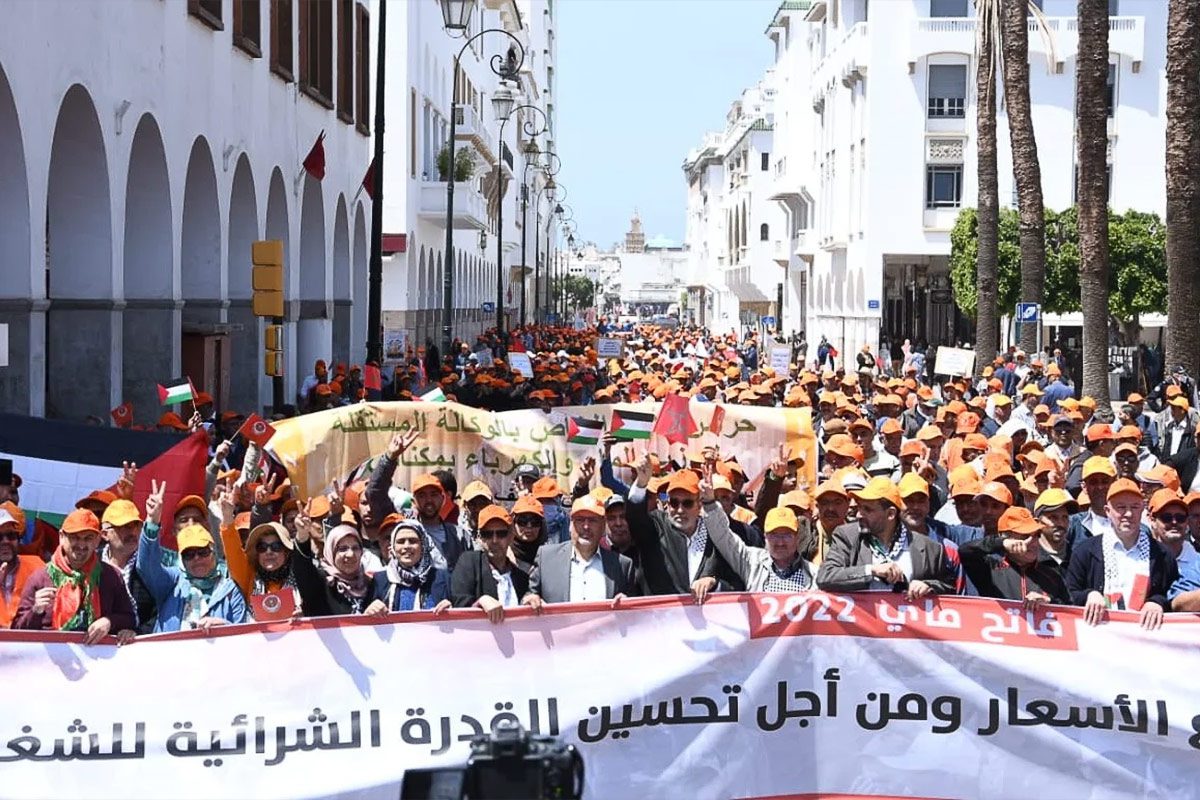
This minimum wage is rising steadily. Morocco has the highest average wage in the region, and the recent raising the minimum wage and increasing tax thresholds will certainly improve the purchasing power of the majority of employees.
Labour law, on the other hand, has changed little. It is still very strictly applied by the courts, once the employee decides to lodge a complaint. But it lacks concepts such as moral harassment, requalification as a contract of employment… and gender equality is rarely translated into practice. The labour inspectorate has few resources to carry out checks.
 A typo or syntax error? You can select the text and hit Ctrl+Enter to send us a message. Thank you! If this post interested you, maybe you can also leave a comment. We'd love to exchange with you !
A typo or syntax error? You can select the text and hit Ctrl+Enter to send us a message. Thank you! If this post interested you, maybe you can also leave a comment. We'd love to exchange with you !


